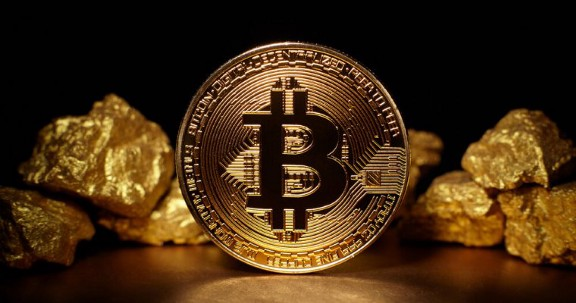Chain Hill Capital: How Bitcoin Gained Store-of-Value Status
Authorized translation: Carrie | Chain Hill Capital
Original Author: Fernando Ulrich | Austrian School Economist, Brazilian Cryptocurrency Expert
Authorized translation: Carrie | Chain Hill Capital
Original link:
Original link:https://medium.com/@Ulrich_98986/how-bitcoin-attains-the-status-of-a-good-store-of-value-6b812395713c
image description

Will Bitcoin Become Digital Gold?
This is the third article in this series of articles. There are five articles in this series.
For Bitcoin to be considered a good store of value, the market must understand and trust the soundness and robustness of the value proposition established by its protocol's core attributes and rules. The immutability of Bitcoin's monetary policy (i.e. a hard cap of 21 million or 2.1 trillion satoshis), the highest level (and paranoid) security, and decentralization are all typical examples of its protocol rules, which are mutually exclusive. Promoted.
Sound protocol development means following strict rules to protect these core properties. Developers, including core maintainers and other contributors, are part of this (sound protocol development) process and lead the implementation of the technology. However, developers alone cannot and should not determine the future of the protocol, as users must also play an important role in shaping and strengthening that ethos.
Strict adherence to the rules requires that Bitcoin nodes be independent, decentralized, self-validating, and enforce the rules, which can only be guaranteed in the long run if the cost of running a full node remains modest. Because high operating costs would undermine the ability of nodes to self-validate and enforce rules, thereby compromising the principles of decentralization and strict adherence to rules.
Sound protocol development also implies conservatism, including advocating backward compatibility and defending the status quo over others (eg, the status quo must be preserved in the face of controversial changes or improvements). NakamotoSatoshi NakamotoAdvocating this idea, heonce wrote: "Bitcoin is characterized by the fact that once version 0.1 is released, its core design cannot be changed for the rest of its life." conform to.
image description

The Alchemist in Search of the Philosopher's Stone(Painting by Joseph Wright, 1771)
When it comes to gold, it is worth thinking about why, so far, it has withstood the test of time in ancient and diverse societies for thousands of years? Why is it that to this day central banks around the world still use gold as a large part of their reserve assets, yet there is no currency in the world that is backed by gold or redeemable for gold?
This is not because gold has lower transaction costs in the narrow sense than most mediums of exchange, nor because it possesses unrivaled transaction capabilities. So it's definitely not because it's the best medium to facilitate the actual transaction.
No one is better qualified to answer that question than central banks themselves. according toBullionStar BlogAccording to a recent survey:
“In their own words, there are many reasons why central banks hold large amounts of gold. However, there is one common thread in the responses of central banks. Many respondents mentioned the ability of gold to be called upon in a crisis, such as: “It can be used in Activation of gold reserves in case of emergency", gold is "emergency reserve in crisis", "contingency against unforeseen events", some form of "insurance", or as the Bank of England puts it, "war funds" and “the ultimate asset to have in an emergency.” As a result, almost all central banks refer to gold as a safe-haven asset.
In addition, many central banks mentioned the high liquidity of gold, and some mentioned the ability to use gold to obtain foreign currency liquidity, and may even use gold for foreign exchange intervention.
The role of gold as a hedge against inflation was mentioned in the answers of many central banks, which explains why the central bank regards the price of gold as a barometer of inflation expectations.
Many banks also point out that gold does not have any counterparty or credit risk due to the unique properties of physical gold, such as limited supply and mining, and, since it is not issued by a government, it does not have default risk. "
All in all, central banks around the world hold gold because it is a recognized store of value. All other properties of gold derive from this foundation.
Historically, both individuals and businesses have demanded gold because it is a superior store of value and its scarcity cannot be tampered with. As liquidity increases, gold gradually transforms into a spontaneous medium of exchange until it achieves unrivaled liquidity and becomes the unit of account. However, due to its "inability to scale by design", many methods have been created that can use gold to pay with it without transferring it. Banks, banknotes (the forerunner of modern paper money), certificates of deposit, and payment networks based on banking systems are all examples of transactions (off-chain) that can be made without physically handling the underlying currency (on-chain).
As a result, gold has served as the de facto monetary standard at many different times in history. Again, this is not because of its lower transaction costs in a narrow sense, but because of its natural scarcity and unforgeable production costs.
secondary title
Bad coins drive out good coins and Bitcoin HODLers ("Steady Holders")
When people can choose to pay with good or bad money, they will always choose the bad money and hoard the good money. In other words, spend overvalued currencies while holding undervalued currencies. This idea is the gist of the famous Gresham's Law, which states that "bad money drives out good money." But this can only happen if the exchange rate between currencies is artificially fixed by law, which has historically been the case with both gold and silver.
as economistsFriedrich A. Hayek(Friedrich A. Hayek pointed out, when buyers can (unilaterally) choose to pay with good or bad money, they will unquestionably choose the bad money and keep the good money for other purposes. However, when the exchange rate between currencies is freely determined by the market, that is, free competition between currencies, Grassan's law does not apply.
As a HODLer, I admit that paying with bitcoin is exciting, but it doesn't make much economic sense right now. (By the way, I tend to use Bitcoin more when the price rises, which contradicts the predictions of mainstream economists, but that's another topic). Why would I give up a great store of value (in my subjective assessment) if I can pay for a devalued local fiat currency? Why would anyone pay with an appreciating (or promising) asset instead of an inflating fiat currency?
Economists suffering from "deflation phobia" will immediately answer that a deflationary money will never succeed because no one will pay with it. But this answer sidesteps a crucial aspect of voluntary exchange: the choice of currency is not a unilateral decision. As long as you don't live in a country where fiat currency is enforced (for example, in my native Brazil, it is illegal to refuse payment in local currency), good money tends to drive out bad money because the seller has a say in the economic transaction. Therefore, sellers can rightfully refuse payment in bad money or insist on paying in good money. In countries with a history of currency crises, citizens have historically turned to the dollar, especially in big deals like real estate deals. In this case, the seller will ask for payment in US dollars and will not accept anything else (if you don't believe me, try buying property in Uruguay with pesos).
The same economic reasoning applies to Bitcoin HODLers. Today, if the seller has no preference, I will not give away my Bitcoin, but pay him in local fiat currency. However, if more and more people realize that Bitcoin is a good store of value (good money), then I will have to pay my Bitcoin because sellers are not willing to accept devalued currency. In that sense, I think what we need to see is merchants themselves wanting to receive payment in bitcoin, not just figuring out how to get them to accept bitcoin they don't intend to hold.
Supported by a professional team with multicultural backgrounds, members of the core departments - Investment Research Department, Trading Department, and Risk Control Department are all from well-known universities and institutions at home and abroad. They have a solid financial background, excellent investment research capabilities, and a keen sense of the market Sensitive ability, highly awe of the market and risks. The Investment Research Department combines rigorous basic research with mathematical and statistical models to obtain investment strategies such as "Pure Alpha" and "Smart Beta", and will soon export institutional-level research reports and project due diligence reports.
About Chain Hill Capital
Since its establishment in 2017, Chain Hill Capital (Qianfeng Capital) has focused on the value investment of global blockchain projects. It has created early-stage and growth-stage equity investments and encrypted digital asset investment matrices of Alpha Strategy and Beta Strategy. Global resource relationship network, strategic layout of Chicago, New York, Tokyo, Beijing, Shanghai, Shenzhen, Hong Kong, Xiamen and other city nodes. With a wealth of overseas investment institutions and a global high-quality project resource pool, it is an international blockchain venture capital fund.
Supported by a professional team with multicultural backgrounds, members of the core departments - Investment Research Department, Trading Department, and Risk Control Department are all from well-known universities and institutions at home and abroad. They have a solid financial background, excellent investment research capabilities, and a keen sense of the market Sensitive ability, highly awe of the market and risks. The Investment Research Department combines rigorous basic research with mathematical and statistical models to obtain investment strategies such as "Pure Alpha" and "Smart Beta", and will soon export institutional-level research reports and project due diligence reports.



